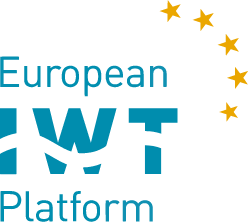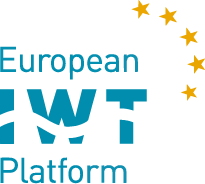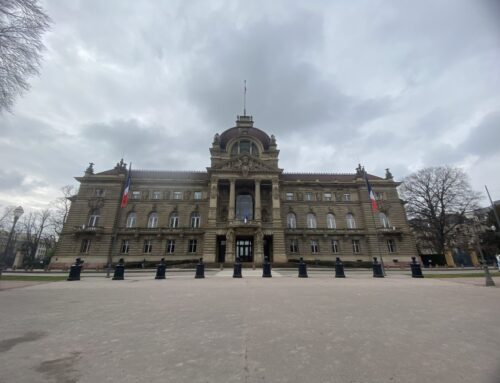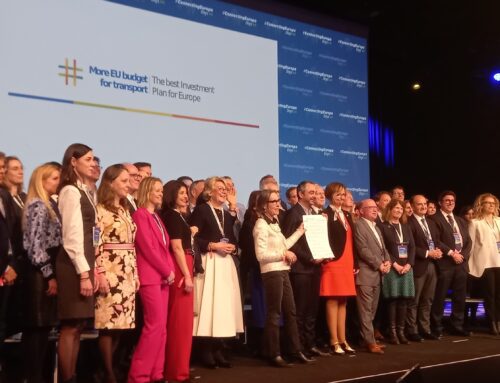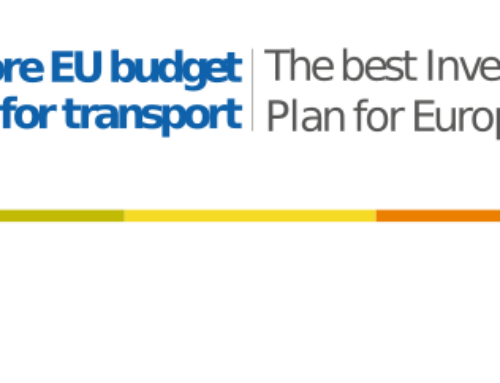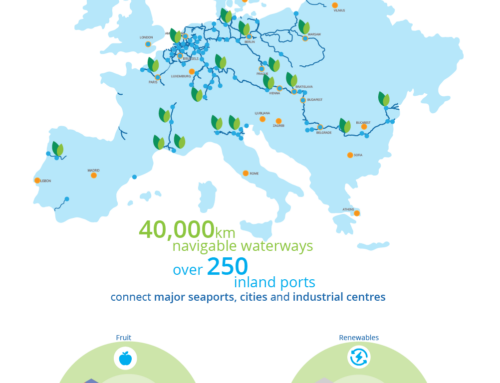On June 21st, the CDNI-hearing took place in Strasbourg. Due to COVID-19 and the strong preference to organise the hearing in a physical setup, the event took place with six months delay. However, this resulted in a quite extensive agenda, on behalf of EBU/ESO we got the opportunity to bring in our arguments on important topics for the sector. Below is a short recap of the input delivered.
Challenges in setting up a degassing infrastructure
As an introduction to this topic, an overview of current (and on-going processes to establish) facilities for degassing in the Member States was presented. This overview highlighted again the issue that the current number of facilities is by far not enough to cover the need from the sector. In the process of further extending the number of facilities we addressed a list of recommendations.
One of the current main-issues is the length of the approval process to establish the facilities. Both for fixed and mobile ones, the processes are very long procedures. But also questions like preferred capacity, the investments required, the technic to be used and the process of planning and licence to operate should be considered. In the Netherlands and Belgium, national taskforces are already there to answer these questions. In that respect, we recommended to establish an International taskforce to cover the issues from an Convention wide perspective, as well to raise the topic to an political level. We think that the Member States could also support further in an increase of the speed of the approval procedures as well in the identification of locations for the facilities.
EBU/ESO position on the systems introduced in NL and BE for Part C waste.
For this topic, we took the content of CDNI Articles 5 and 7 as a basis. Where Article 5 defines the financing principle, Article 7 is about financing the reception and disposal of other waste generated from the operation of the vessel. In this article, there is a specific rule when it comes to domestic refuse. Also the Articles 8.01, 8.02 and 9.03 of the Implementing Regulation play a role in this discussion.
What we currently see is the fact that in Germany, France, Luxembourg and Switzerland the disposal of domestic refuse is free of charge. However, already for years now in the Netherlands there is a voluntary abonnement structure in place that can be used to open the containers on the shore and use the bilge-boats to dispose the waste against a fixed fee. In Belgium (Flanders), since January 1st 2021 there is a volume-based system against payment introduced for the disposal of residual waste, bulky waste, paints and solvents.
Given the text in the CDNI Articles 5 and 7, we can conclude that the developments in these Member States are not fully in line anymore with the principles of the treaty. Especially the direct financing method (in at least a part of the Convention area) increases the risk of illegal waste-dumping or -tourism and undermining of the sense and the purpose of the CDNI (water and environmental protection).
In our recommendations for future steps to taken in this topic, we marked out again the uniform regulation that is in CDNI Article 7 when it comes to the disposal of domestic waste. When it comes to coordinated regulations for the other categories of Part C waste, it would be good to further investigate the need for this. Overall, the creation of more collection points for other hazardous waste would be necessary, as well an better overview of the locations where disposal of the waste without a special fee is possible. What we also see is the introduction of definitions that are not part of the CDNI vocabulary. The use of these no CDNI terms would only increase uncertainties, this should be avoided.
Digitalization of CDNI documents
We see a lot of developments going on when it comes to the ambitions on digitalisation and dematerialisation of paper documents. Also within the CDNI there is exchange of information that could be processed in a future digital environment. In the hearing we focused ourself to three main-topics (attestation of unloading, used oil-log and proof of transaction for the disposal fee) and highlighted the importance for the sector to dematerialize these documents involved in the near future. In a broader perspective, it is important to reach an harmonized and standardized framework of data-exchange. Therefore, we advised the CDNI to integrate their ambitions within already existing European processes where similar questions are raised already (e.g. tools to be used, datasets and legal topics).
Data collection by National Institutions
This topic is one of the follow-up actions from the Roundtable on the future of Part A. During this Roundtable, the importance of a more extensive data collection and collation was signed. This should provide a basis for further discussion/analysis and comparison in the future. In the hearing, we raised and discussed several more in depth questions we think they could extend the already available data on a more common level. The next period will be used to develop an harmonized structure to collect the data requested from the National Institutes.
